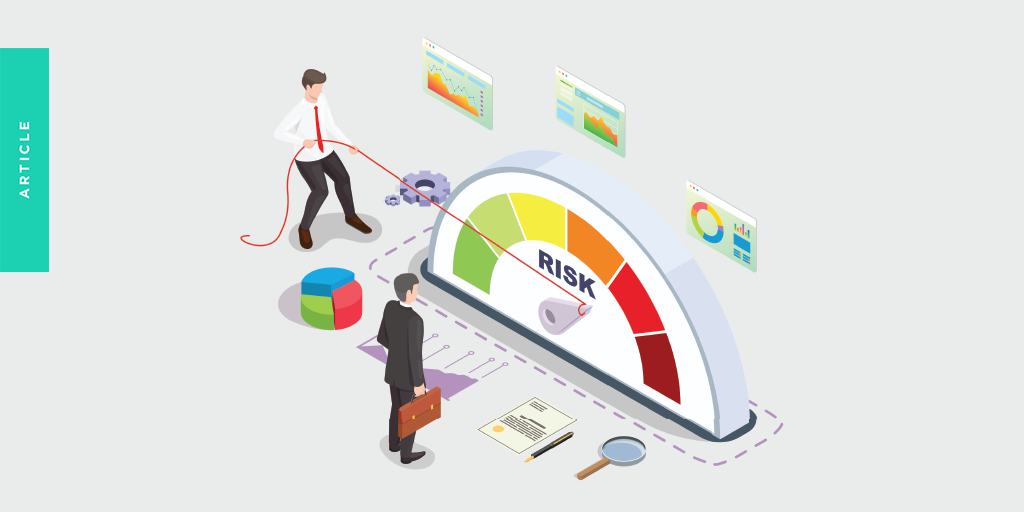These Are the Biggest Business Continuity Risks
Threats like cyberattacks, natural disasters, or malware can have a major impact on your business, draining valuable time and money as you try to recover. It’s essential to identify and monitor these risks so you can protect your business as much as possible. Here are six business continuity risks to keep on your radar.
CYBERATTACKS
The cost of cybercrime is staggering. By 2025, global cybercrime costs are expected to hit $10.5 trillion per year (compared to just $3 trillion in 2015). A cyberattack can hurt your business by disrupting operations, damaging your reputation, and stealing sensitive or crucial information.
Do your best to avoid these risks by incorporating cybersecurity into your business continuity planning. Store your data across multiple places in your network, and keep all software and hardware up-to-date. You should also have a detailed disaster recovery plan that can be put into action should a cyberattack occur.
DATA BREACHES
Data breaches are also becoming more common and more serious. In fact, experts in the healthcare sector have said that 2023 may be the “most catastrophic year yet” for hospital data breaches.
Protect your company’s data by classifying sensitive assets and beefing up security; only verified users should be able to access internal data. Encrypt especially important data. And if any abnormal or suspicious activity is detected, the right people should be immediately alerted.
UNPLANNED IT AND TELECOM OUTAGES
Another business continuity risk is unplanned IT and telecom outages. If your IT system unexpectedly goes offline, your business operations will undoubtedly be disrupted — and you might sustain damage to your profits or reputation, too.
Your business continuity plan should include provisions for service interruptions. If a network goes down, you’ll want to shut down access to that primary network and move critical operations to a different, backup network. This standby equipment will provide critical support when you need it the most.
INTERRUPTION TO UTILITY SUPPLY
Your utilities — electricity, gas, water, sewage, cable, and Internet — might be interrupted by a natural disaster. Depending on what kind of business you run and which utilities you use regularly, the impact this has on your operations can vary. But you want to be prepared for the worst-case scenario.
Inspect your systems on a regular basis and make any necessary repairs (for example, ensure your heat is working properly before winter comes). Come up with a plan detailing how you’ll manage should the power go out. And if a big storm or another natural disaster looms on the horizon, create a plan for your business in case your utilities are affected.
SECURITY INCIDENTS
Data breaches aren’t the only security incidents that can affect your business. From malware attacks to hardware theft to unauthorized access, unfortunately, there are many types of security incidents that could undermine your operations.
Following cybersecurity best practices is the smartest way to protect yourself from attacks like these. You should:
- Use a VPN
- Require multi-factor authentication
- Educate employees on cybercrime
- Back up everything
- Use anti-virus software
Finally, you should always be safe instead of sorry. If you think a link looks suspicious, do not click on it. It’s better to be cautious rather than open yourself up to a potential breach.
SUPPLY CHAIN AND TRANSPORT NETWORK DISRUPTIONS
Today, we’re all familiar with supply chain disruptions as the COVID-19 pandemic has caused a worldwide shortage of our favorite products. Supply chains are less resilient and are becoming more costly. Your transport network, or the flow of trade, might be disrupted too.
Take action by identifying the biggest risks to your supply chain. Then adapt your operations to fit around those risks.
THE IMPORTANCE OF BUSINESS CONTINUITY PLANS
The prevalence of these business continuity risks makes one thing very clear: Your business won’t survive without a strong business continuity plan. Minimize your risks by proactively addressing threats using a carefully-crafted plan to maintain business continuity.
By focusing on backup and recovery; network security; and routine upgrades and maintenance, you’ll be prepared to keep your business operations up and running no matter what comes your way.
Content created and provided by ONEAFFINITI.












